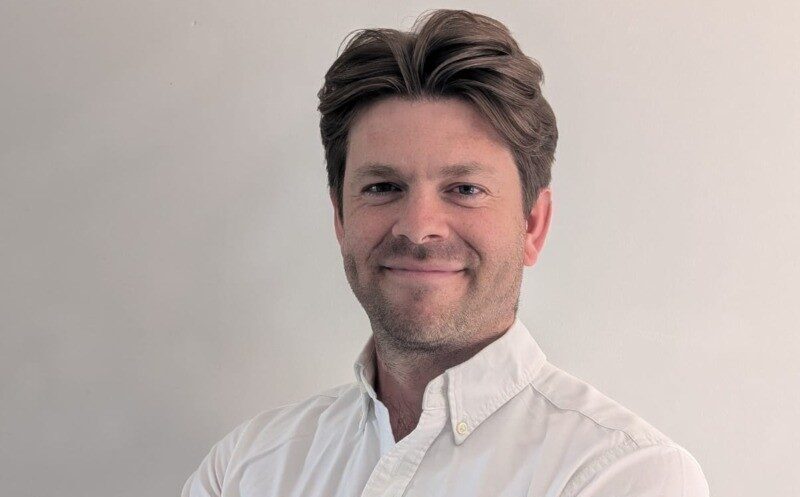We took some time out with Independent Financial Adviser (IFA) Gerard McVeigh to talk about why he got into financial services and how curiosity, empathy and proactive planning are central to helping people feel more confident about their future.
How did you get into Financial Services?
Before becoming an IFA, I’ve spent much of my career in the recruitment and people space, dealing with commercial real estate companies. I founded a recruitment technology business, which I managed for nearly a decade, working with key regional and global players in the industry.
After successfully completing the Level 4 Diploma in Regulated Financial Planning, awarded by the Chartered Insurance Institute, I spent a period running my own Appointed Representative business, on a restricted advice basis, then joined in MPA in January 2025.
Why did you become a Financial Adviser?
I’ve always been drawn to roles that make a difference to people’s lives. Becoming an IFA has given me the opportunity to do just that, helping clients make sense of their financial options and plan for a more secure future.
It’s a really rewarding career and a privilege to be trusted to help people manage their financial affairs and plan for their future.
Everyone is trying to achieve different things at certain points in their life. As independent advisers we have access to the latest factual information, so can support with planning, forecasting and presenting a variety of options to see which ones fit best at the right time.
This is a people-first profession. While technical knowledge and qualifications are essential, what truly matters is how we apply that knowledge in a way that makes people feel understood and supported. Done properly, financial advice can be life-changing—it can bring clarity, confidence, and peace of mind.
I see my role as an IFA to be an adviser, coach, independent and objective sounding board that has no emotional or financial attachment to a given situation. That way, we can encourage people to take a step back and help focus decision-making.
What skills do you bring to your role as an adviser?
Building relationships and understanding people were key in running my own business and that’s what led me to be interested in financial advice.
At the heart of financial advice is people. The ability to build relationships and understand someone’s personal story, what drives them, worries them and excites them is crucial.
In my previous roles, I learned how to listen, ask the right questions and create meaningful partnerships.
Those same skills apply directly to financial advice. I enjoy talking to my clients, getting to know them and building trust. This is beneficial to be able to provide a holistic approach to financial planning and wealth management.
Understanding the dynamics of a person’s life, their family, their ambitions, the milestones they want to reach enables us to shape financial plans that feel relevant and personal. It enables us to provide intergenerational advice and guidance on how to manage money now and in the future. Whether it’s pensions, investments, estate planning or inheritance tax, it’s about helping people make confident decisions at the right time in their lives.
For any clients considering financial advice, what would your advice be to them?
Don’t put it off!
A recent FCA Survey found that less than 9% of people have access to financial advice. From helping with personal taxation, cash flow, planning for retirement or efficiently passing wealth down to support next generation, independent advice helps people achieve their goals in life and gives them peace of mind that they can achieve the things they want to.
People often wait for things to happen and take a reactive approach rather than making a proactive plan. There are lots of small steps people could take immediately to begin building financial resilience and make things easier for themselves, and their families, now and in the future.
It’s also important to ask the right questions, build trust and work with someone you have confidence in. You can have the exams but you need the people-centred approach as you will share personal information. You have to be comfortable with the person you choose for advice.
Because of its client focus and always doing what is right for the person, MPA has a reputation for building long standing relationships, which is really important.
What can people expect when meeting a financial adviser for the first time?
In the majority of cases, in a first chat with an IFA, you don’t really talk too much about money or finance, it’s more about what happening in a person’s life – their working plan, whether they own a business, what their longer-term aspirations are, if they have dependents or other interests that influence financial plans.
From developing a robust emergency fund, through to income protection, retirement planning, savings and investments and inheritance tax planning, there are benefits to seeking independent financial advice and building a picture to understand what your personal situation looks like.
All this information gathering informs options. We would then more formally review income and expenditure, work life, life expectancy in a follow up session. It all starts with the person, their relationships and their goals.
Visit our team page to find out more about our Independent Financial Advisers and our support team.
